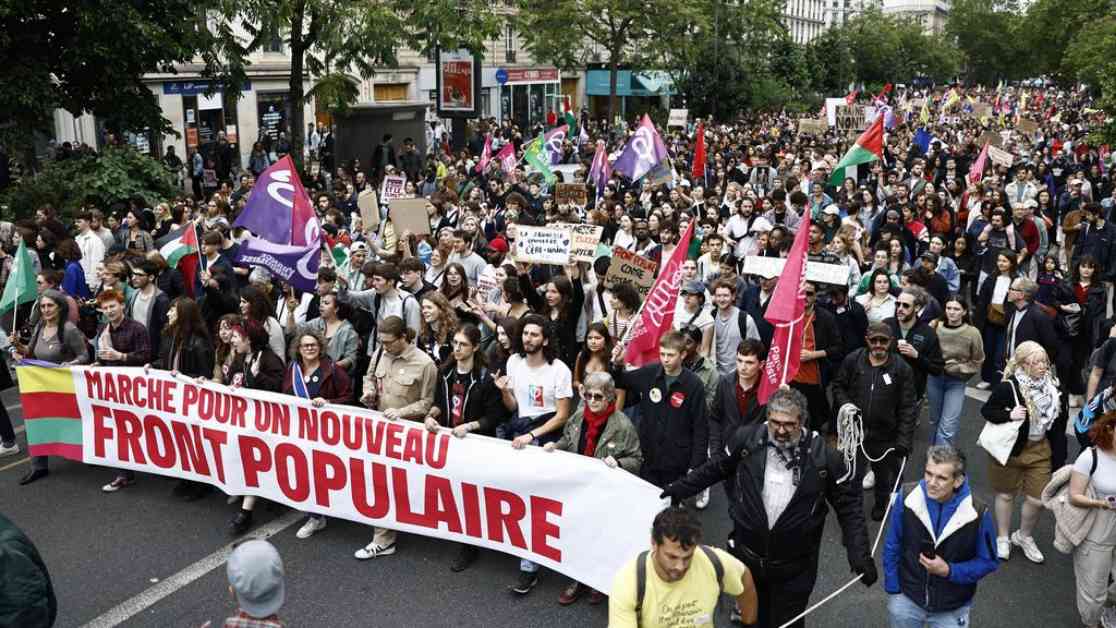In France, many tens of thousands of people took to the streets to protest against the rise of far-right radicalism. They are concerned that Rassemblement National (RN) will perform as well in the upcoming parliamentary elections as it did in the European elections.
The largest demonstration was in Paris, where despite wind and rain, around 75,000 people took to the streets, according to the police. The procession ran from Place de la République to Place de la Bastille. The protest, for the most part, proceeded peacefully. However, a handful of individuals were arrested for causing damage. The police also used tear gas to prevent the destruction of a bus stop.
In addition to Paris, protests were announced in 150 other locations, including Marseille, Toulouse, and Lille. The police deployed 21,000 officers to ensure everything ran smoothly.
The demonstrations were organized by trade unions, student groups, and civil rights activists. They are worried about the prospects of the far-right Rassemblement National in the elections in two weeks.
President Macron unexpectedly called for parliamentary elections after his party Renaissance lost in the European Parliament elections. RN received nearly a third of the votes in France, almost twice as much as Renaissance.
RN also performs well in the polls for the parliamentary elections. It is expected that the party could receive 33 percent of the votes, far ahead of a coalition of left-wing parties, which stands at 25 percent. Macron’s party is projected to receive only 20 percent.
If RN maintains this lead, the 28-year-old party leader Bardella will become the new prime minister under Macron. The last time such a cohabitation, where power is shared, occurred was in 2002 when the right-wing president Chirac governed with the left-wing prime minister Jospin.
Macron will retain control over areas such as defense and foreign affairs, but Bardella will lead in economic and domestic affairs. Macron’s own term will not end until 2027.
One of the politicians who will try to prevent this is the socialist former president Hollande. The immediate predecessor of Macron announced his candidacy today in the Corrèze department. “An exceptional decision for an exceptional situation,” he explained.
Hollande was voted out of office after one term as president with dramatic popularity ratings. His party PS responded reservedly to his return: a party official only stated that they “took note” of his candidacy.

